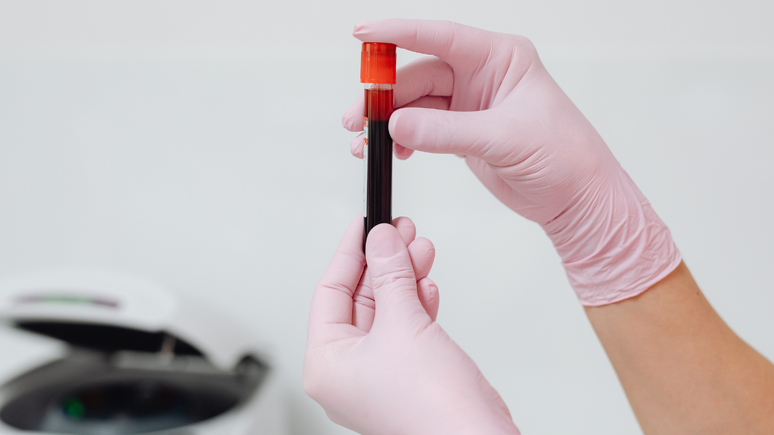Josenilda Pedreira Alves is the mother of Dario, an extremely premature baby, born in January who weighed just 809 grams; they prepare to go home together immediately after Mother’s Day, after 112 days in intensive care
If for every mother motherhood is a treasure chest of surprises, surrounded by doubts and uncertainties, for mothers in intensive care the anxieties are even more latent. About to give birth to her first child, radiodiagnosis nurse Josenilda Pedreira Alves, 37, learned in the delivery room that it would not be possible to hear the baby’s cry when she was born: in fact Dario did not cry. He was born prematurely, on January 22, at the 26th week of gestation, weighing 809 grams and without fully formed lungs: he was therefore immediately intubated and taken to the incubator, without even being able to feel the first touch of his mother’s womb.
This Mother’s Day Sunday, the first one celebrated by the nurse, Dario will live 112 days in a neonatal intensive care unit, but he is about to return home with his parents after almost four months of fighting for his life.
Until the day of birth, Josenilda’s pregnancy went smoothly, with up-to-date prenatal care, no high blood pressure, no gestational diabetes and no other comorbidities that could indicate a premature birth. She says she started feeling contractions on January 21, but thought they were “training contractions,” movements that happen when the muscles of the uterus contract involuntarily, making the belly harder for a few seconds, in a very random, normally painless way . In Josi’s case, the contractions intensified, her pain increased, and she went to the hospital. There I learned that I had three dilated fingers and that Dario could be born at any moment.
That’s when the first breakdown in expectations occurred. “I had already lost a baby before Dario. Three years later I got pregnant again and I was radiant. The prenatal care was going very well and I was full, very calm, I had no nausea and I was having a magnificent time in my life, I dreamed of a natural birth. It all happened very quickly, the doctors’ idea was to hospitalize me and try to keep Dario for another period, but during this period my water broke”, recalls the mother. .
Already in the surgery center, in the company of her husband Cristian, Josi remembers that several professionals tried to calm her down, but the most present memory is that of the neonatologist Marcela, who approached her and explained that Dario probably would not have cried when he was born and , due to his extreme prematurity, he should have been taken immediately to a room where the necessary procedures to guarantee his life would have been carried out.
“He told me: don’t be scared if he doesn’t cry. Imagine what it means for a mother not to hear her baby cry when he is born. I closed my eyes, things happened, he was born and I wasn’t. You hear the crying” , He says. .
Dario was already more than 2 months old when Josi was able to breastfeed him directly: until then the baby received breast milk, but through a tube. The mother was prepared and the baby was evaluated by a speech therapist to see if he would be able to breastfeed.
“The first day I would say it was a horror show. We create the image that breastfeeding is easy and perfect, but in reality it is not. I didn’t know how to hold it, how to position it so that it was comfortable for both of us of us. I was unable to breastfeed him, not even with the support of the nurses and speech therapists. I think the emotion invaded my heart and the happiness of knowing that he would not receive milk through a tube, but through my chest. it made me lose connection,” the mother says jokingly.
Josi recovered and Dario was able to breastfeed his mother. Since then the baby has been breastfed daily and at alternate times receives breast milk through the bottle.
In these almost four months Dario has experienced ups and downs in intensive care. Between one coming and going, the mothers in intensive care become partners and share moments of joy, achievements and the evolution of their children, but they also experience moments of anguish and sadness together. They share with each other the pain and uncertainty of tomorrow and support each other. In most cases, the babies evolve and are discharged, but there are also cases of loss and these women end up experiencing the pain of having an empty breast.
Today Dario weighs 3.6 kg and measures 47 cm. He no longer uses any oxygen support and is under observation to evaluate his behavior in room air and to see if he keeps all parameters stable before returning home. At the beginning of the week he received his first bath from his parents and the expectation is that he will be discharged shortly after Mother’s Day.
“Being a mother is something extraordinary. It’s a total donation, it’s a total surrender, it’s leaving your whims aside. It’s being there so that another life can develop”, says the mother for the first time with her voice breaking. “Being a mom is a gift and I learn every day. Neither babies nor moms come with an instruction manual and every day is a learning experience.”
In Brazil, 12% of children are born prematurely
Josi’s story inside a neonatal intensive care unit is not the only one and is repeated almost every day. In Brazil, each year, around 12% of babies are born prematurely, that is, before reaching 37 weeks of gestational age, and will need intensive care support until they are ready to go home.
“The prematurely the baby is born, the longer the stay in the neonatal unit will be,” explains Romy Schmidt Brock Zacharias, medical coordinator of the Neonatology Service at the Israelita Albert Einstein Hospital.
According to the doctor, neonatology is a specialty that has made great progress in recent years, both in the better understanding of the physiology of premature newborns, and in the development of new technologies, which increasingly allow the vitality of a greater number of premature newborns.
Examples of advances include incubators with humidification, new mechanical ventilators, which offer ventilatory support with less damage to the lungs, and parenteral nutrition, which allows the baby to be fed even before he or she can receive diet.
“The challenges of a mother in the NICU begin with disappointing expectations for a baby who was born healthy, but who, for some reason, arrived early and needed help, monitoring or support from a therapeutic unit. Intensive care is often tiring and unstable, we try to work together with the parents, sharing decisions and bringing them closer to the treatments”, explains the neonatologist.
“If I can leave a message, it is that these mothers have faith and perseverance and do not compare themselves with others or with perfect motherhood, which is promoted in the media and on social networks. Each one is unique, each child is unique. True motherhood has its challenges, every mother has her own goals to overcome individually. Live every minute of this phase in a unique way, which will never come back!”, concludes Dario’s mother.
Source: Terra
Ben Stock is a lifestyle journalist and author at Gossipify. He writes about topics such as health, wellness, travel, food and home decor. He provides practical advice and inspiration to improve well-being, keeps readers up to date with latest lifestyle news and trends, known for his engaging writing style, in-depth analysis and unique perspectives.







